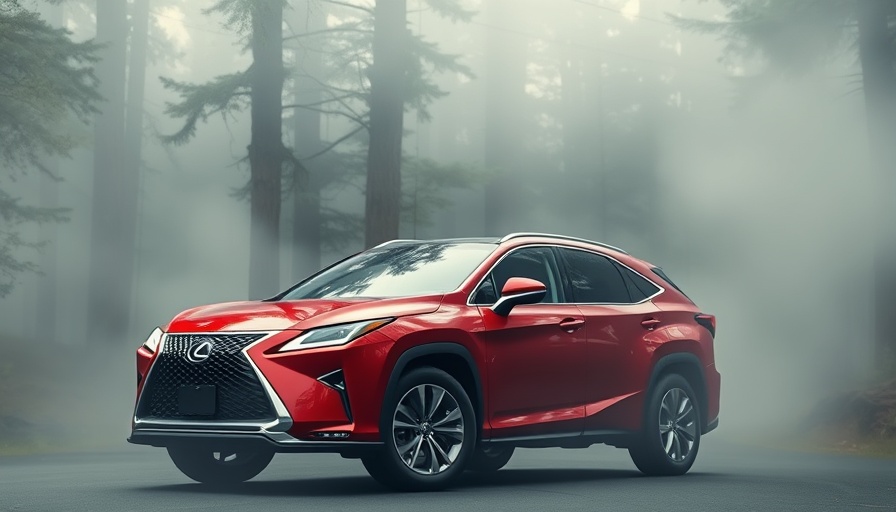
Why Lexus Struggles to Attract Young Buyers
Lexus has long been known as a symbol of luxury and reliability. However, a recent report from S&P Global Mobility sheds light on the stark reality that this iconic brand is failing to appeal to younger car buyers. While sports brands like Ferrari are successfully attracting under-40 clientele, Lexus finds itself grappling with an aging demographic. The average Lexus owner is a staggering 57.6 years old, making it the oldest buying group among premium brands.
The Demographic Divide: Lexus vs. Competitors
Data paints a compelling picture of Lexus's buyer profile in stark contrast to its German rivals. For instance, only 46.8% of Lexus buyers have a household income of less than $150,000, compared to 35.2% for BMW and 40.3% for Mercedes-Benz. This suggests that Lexus may not be resonating as strongly with affluent, younger professionals who prioritize performance and sportiness—qualities that BMW and Mercedes prominently showcase.
What Makes a Brand Appealing to Youth?
In today's fast-paced market, luxury brands are constantly trying to attract younger consumers through savvy marketing campaigns and social media engagement. Ferrari's CEO, Benedetto Vigna, noted that 40% of new clients are under 40, an indication that luxury does not need to mean unattainable for younger demographics. This raises an important question: What strategies can Lexus adopt to resonate with a younger audience? They must move beyond their well-established image of reliability and perfection to innovate and embrace trends that appeal to the lifestyle and priorities of younger consumers.
The Gender Dynamics in Lexus Purchases
Interestingly, the report reveals that more women are buying Lexus vehicles compared to men—50.4% of Lexus buyers versus only 40.6% in the broader luxury market. Factors contributing to this trend likely involve the popularity of the RX crossover, which is perceived as more appealing to women. As they strive for greater gender inclusivity, Lexus might benefit from targeting more tailored advertising that resonates with younger female consumers.
A Need for Change: What Lies Ahead?
Clearly, Lexus faces challenges that require immediate attention. As younger generations increasingly value experiences over possessions, brands have the opportunity to engage consumers through lifestyle alignment rather than traditional marketing. This shift in focus can help brands like Lexus adapt to ever-changing societal and economic landscapes.
Can Lexus Turn Things Around?
In conclusion, while Lexus faces an uphill battle in attracting younger consumers, the opportunity for renewal and growth remains potent. Adapting their marketing strategies and vehicle line-up to better align with millennials and Gen Z could be the key to revitalizing the brand. As this segment of the market grows in purchasing power, standing idle could mean remaining out of touch with the evolving preferences and values that drive today's consumer behavior.
 Add Row
Add Row  Add
Add 




 Add Row
Add Row  Add
Add 

Write A Comment